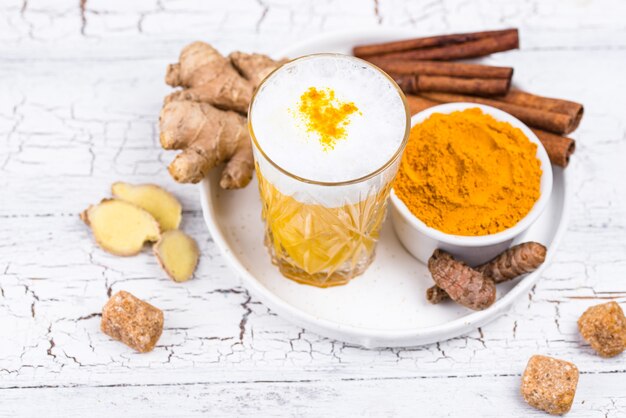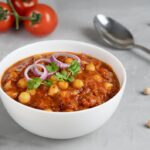Inflammation is the body’s natural response to injury or infection, but chronic inflammation can lead to serious health issues such as heart disease, diabetes, arthritis, and even depression. While anti-inflammatory medications help, incorporating certain foods into your diet can play a significant role in managing inflammation naturally. Here are 20 foods that South Africans can eat to reduce inflammation:
1. Fatty Fish
Fatty fish like sardines, mackerel, and salmon are rich in omega-3 fatty acids, which help reduce inflammation by lowering levels of pro-inflammatory compounds in the body. Including these fish in your diet at least twice a week can have powerful anti-inflammatory effects.
2. Olive Oil
Extra virgin olive oil is loaded with healthy fats and antioxidants, particularly oleocanthal, which has similar anti-inflammatory properties to ibuprofen. Drizzling olive oil over salads or using it for light cooking is a heart-healthy way to combat inflammation.
3. Spinach
Spinach is rich in lutein and other antioxidants that help fight inflammation. It’s also high in fiber and other essential nutrients, making it a great addition to salads, smoothies, or as a cooked side.
4. Tomatoes
Tomatoes are packed with lycopene, an antioxidant that has been shown to reduce inflammation, particularly in the lungs. Cooked tomatoes, such as in stews or sauces, release even more lycopene, making them a staple for an anti-inflammatory diet.
5. Turmeric
Turmeric, commonly used in curries, contains curcumin, a powerful anti-inflammatory compound. Pairing turmeric with black pepper enhances its absorption, boosting its effectiveness. Add it to soups, stews, or teas to fight inflammation naturally.
6. Berries
Berries like blueberries, strawberries, and raspberries are high in antioxidants, particularly anthocyanins, which reduce inflammation and protect the body from oxidative stress. Including them in your breakfast or as snacks can support your overall health.
7. Nuts
Almonds, walnuts, and hazelnuts are excellent sources of healthy fats, fiber, and antioxidants. Walnuts, in particular, contain omega-3 fatty acids that are beneficial for reducing inflammation.
8. Broccoli
Broccoli contains sulforaphane, a compound that has been shown to reduce levels of inflammatory markers. This cruciferous vegetable is also rich in vitamins and minerals, making it a versatile option in a variety of dishes.
9. Ginger
Ginger has long been used for its medicinal properties, especially in reducing inflammation. Adding fresh or powdered ginger to teas, smoothies, or stir-fries can help combat inflammatory conditions like arthritis.
10. Sweet Potatoes
Sweet potatoes are rich in beta-carotene, a powerful antioxidant that helps reduce inflammation. They are also a good source of fiber and vitamins A and C, which support immune function and overall health.
11. Avocados
Avocados are packed with monounsaturated fats and antioxidants like vitamins C and E, which help reduce inflammation. Including avocados in your salads or as spreads can contribute to a healthy heart and reduce chronic inflammation.
12. Green Tea
Green tea is rich in polyphenols, particularly epigallocatechin gallate (EGCG), which has strong anti-inflammatory and antioxidant effects. Drinking green tea regularly can reduce the risk of chronic inflammatory diseases.
13. Garlic
Garlic contains sulfur compounds that have been shown to reduce inflammatory markers in the body. Fresh garlic, added to meals like stews, curries, or grilled vegetables, can help fight inflammation and support immune health.
14. Chia Seeds
Chia seeds are a plant-based source of omega-3 fatty acids, fiber, and antioxidants. These tiny seeds can help reduce inflammation and improve heart health. Add them to smoothies, yogurts, or porridge for a nutrient boost.
15. Beetroot
Beetroot contains betalains, which are known for their antioxidant and anti-inflammatory properties. Including beets in salads or smoothies can help lower inflammation and improve blood circulation.
16. Pineapple
Pineapples contain bromelain, an enzyme that has been shown to reduce inflammation and improve digestion. Incorporating fresh pineapple into your diet can be a sweet way to reduce inflammation naturally.
17. Oats
Whole oats are rich in fiber and antioxidants, making them a great anti-inflammatory food. The soluble fiber in oats, known as beta-glucan, can reduce levels of inflammation in the body and improve overall health.
18. Papaya
Papayas are packed with papain, an enzyme that has anti-inflammatory properties. This tropical fruit is also high in vitamins C and E, which help reduce inflammation and support immune function.
19. Cinnamon
Cinnamon is known for its antioxidant properties, which help fight inflammation. Adding cinnamon to your morning porridge, smoothies, or coffee can provide anti-inflammatory benefits throughout the day.
20. Kale
Kale is one of the most nutrient-dense leafy greens and contains antioxidants like quercetin and kaempferol, which reduce inflammation. Whether consumed raw in salads or lightly sautéed, kale is a powerful anti-inflammatory food.
A diet rich in anti-inflammatory foods is essential for reducing the risk of chronic illnesses and improving overall health. Incorporating these 20 nutrient-dense, anti-inflammatory foods into your daily meals can help South Africans reduce inflammation, boost immunity, and support a healthy lifestyle. By making mindful dietary choices, you can manage inflammation and promote long-term well-being naturally.








